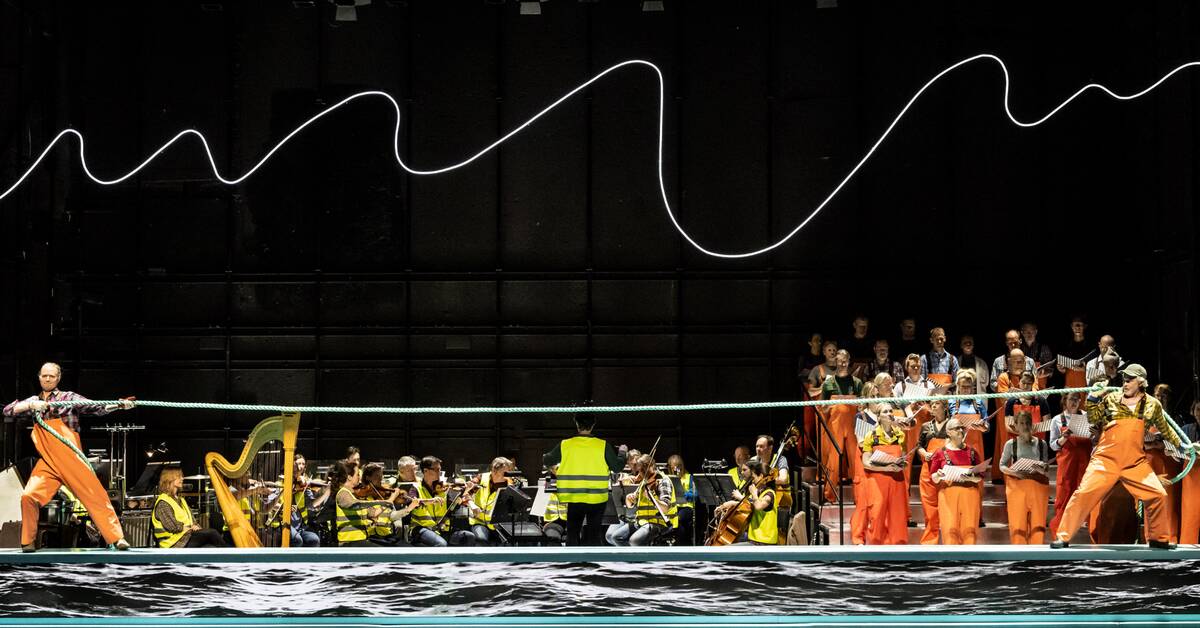No, the August Prize
-winning non-fiction book about the world's most enigmatic fish has not been turned into an opera.
Maybe it would not have become an oratorio either - if Patrik Svensson had not called his story "Ålevangeliet".
An oratorio is based on biblical stories: to be more or less dramatically sung by choirs and soloists.
In terms of form, "Ålevangeliet" is a traditional, semi-stage oratorio.
Much like the classic "Disguised God", which was probably a role model for the composer Emmy Lindström and the librettist Stina Oscarson.
Three soloists: the father, the son and the sacred science.
A medium-sized orchestra and ditto choir.
What stands out
at the Folkoperan is the eel: the clarinetist Emil Jonason, who, dressed in dark, sneaks around the story and the room.
He plays an "ewi", an electric wind instrument that is the show's most enigmatic and poetic element.
In contrast to the intimate everyday interaction between the son / author and the father.
Director Tobias Theorell and set designer Ulla Kassius have created a clean-shaven and beautiful playing field.
The singers' orange gallon trousers and the orchestra's yellow vests shine against suggestive water animations.
Science - the busy lecturer of mezzo-soprano Linnea Andreassen - gives a bit of a comic edge to an otherwise easy-going but fairly flattened music in so-called Swedish folk tones.
What catches on
is Olle Persson's warm portrayal of the eel-fishing father.
Persson, who has been the Folkoperan's leading baritone since the 1980s, makes an equally powerful and touching portrait of the worn-out asphalt paver.
But the main role is actually the eel's with Emil Jonason's fascinating tonal loops in Folkoperan's fine staging.

